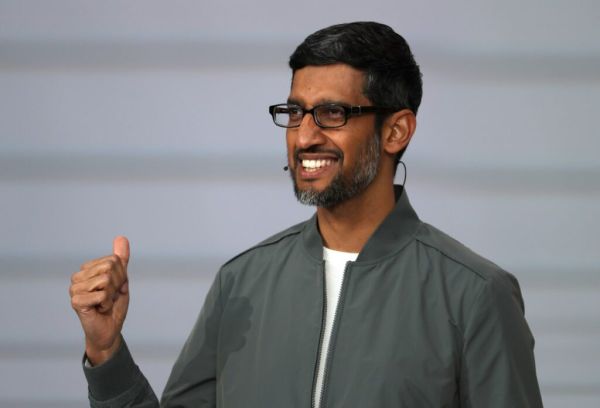Should the presence of CEO on the enterprise board be treated as a fait accompli? Very few questions have been raised about its logic. In S&P 500, nearly 44% of companies still go further, vesting the same individual with the dual mandate of CEO and board chair - although that number is declining under the weight of shareholder activism and governance reform.
Though ubiquitous, CEOs' presence on the board is rarely examined from first principles. Why is the person entrusted with day-to-day execution of strategy also seated at the same table meant to oversee that strategy's formulation, critique and correction? Is this prudent alignment or a subtle erosion of oversight?
In theory, if the board is chaired independently - i.e., CEO is not also the board chair - the chief executive should function as one among equals. A voting director, no more, no less. This is designed to compel a cognitive shift: from operational command to fiduciary oversight. Ideally, CEO must shed the tactical immediacy of daily business and, instead, adopt the broader, long-term view that the board is meant to uphold. In this framing, CEO's board seat is a crucible of discipline, forcing the executive to speak, listen and vote not as an operational leader but as a governor.
This mental recalibration provides the chief a rare vantage point: to witness how seasoned external directors dissect SWOT analysis of the enterprise and propose ways forward. The experience, if approached with humility, can sharpen a CEO's strategic clarity and temper overreach. By sitting as a peer, not a sovereign, CEO is subtly recalibrated on power dynamics. Legally, the board is CEO's boss. That inversion of hierarchy is not just symbolic but foundational to shareholder trust.
But how can one supervise oneself credibly? Despite procedural gymnastics designed to exclude CEOs from their own performance evaluations, the reality is porous. Influence lingers, even when abstentions are observed. CEO, by virtue of information asymmetry and agenda control, can still shape the tone and tempo of board discussions.
Anyone who has sat through enough board meetings has likely seen the charade firsthand: the independent chair gavels the meeting to order, nods to CEO, and then vanishes into quietude, as the chief takes over. The illusion of shared governance is maintained but, in substance, CEO is not simply a director, he is the gravitational pole around which the board orbits.
Such scenarios underscore a deeper dysfunction. CEO is both executive and overseer, strategist and supervised, subject and sovereign. The potential for conflict, subtle or overt, is fused into the structure. This is precisely why a growing number of institutional investors and governance purists are calling for independent chairs, but for a re-evaluation of whether CEOs should have voting rights on the board at all.
It isn't that alternative models don't exist. In some jurisdictions - notably in parts of Europe and Asia - corporate structures are bifurcated into supervisory and management boards, with stricter separation between oversight and execution. The German two-tier model, for instance, prohibits CEOs from being part of the supervisory board. While not without flaws, such frameworks offer a cleaner demarcation of duties - something shareholders in India may benefit from.
One might imagine, then, a scenario where CEOs attend board meetings as 'observers', deeply involved in discussion but not empowered to vote. This hybrid role could preserve benefits of executive insight while reducing the risks of power imbalance. However, in practice, such observers might wield influence that outstrips their formal authority. Influence in the boardroom, in many ways, is not merely a function of votes, but of voice, conviction and power play.
Despite these tensions, there's little appetite in mainstream governance circles to strip CEOs of their board membership. Doing so could be interpreted as a lack of confidence or, worse, a governance red flag.
In the rare instance where a public company omits CEO from its board, assumptions will be made: is the chief embattled? Are there internal divisions? Any departures from orthodoxy are treated not as innovation but as instability.
Perhaps this is why the question - 'Why is CEO on the board?' - is so rarely asked. Its ordinariness covers it in invisibility. But corporate governance should evolve through such questions. Not through sweeping revolution but through precise, difficult questioning that challenges inherited wisdom.
The question isn't whether CEO belongs on the board - it's whether we've become too comfortable with a paradox that governance was designed to guard against. The invisible cloak of 'business as usual' has too long masked a conflict of roles that no audit committee can truly reconcile. Perhaps it's time to challenge the orthodoxy, not with pitchforks but with pointed questioning. Because as one veteran director puts it: 'If the fox is on the henhouse committee, at least let's ask who wrote the charter.' Until then, the governed and the governor still sip from the same carafe and call it accountability.
Though ubiquitous, CEOs' presence on the board is rarely examined from first principles. Why is the person entrusted with day-to-day execution of strategy also seated at the same table meant to oversee that strategy's formulation, critique and correction? Is this prudent alignment or a subtle erosion of oversight?
In theory, if the board is chaired independently - i.e., CEO is not also the board chair - the chief executive should function as one among equals. A voting director, no more, no less. This is designed to compel a cognitive shift: from operational command to fiduciary oversight. Ideally, CEO must shed the tactical immediacy of daily business and, instead, adopt the broader, long-term view that the board is meant to uphold. In this framing, CEO's board seat is a crucible of discipline, forcing the executive to speak, listen and vote not as an operational leader but as a governor.
This mental recalibration provides the chief a rare vantage point: to witness how seasoned external directors dissect SWOT analysis of the enterprise and propose ways forward. The experience, if approached with humility, can sharpen a CEO's strategic clarity and temper overreach. By sitting as a peer, not a sovereign, CEO is subtly recalibrated on power dynamics. Legally, the board is CEO's boss. That inversion of hierarchy is not just symbolic but foundational to shareholder trust.
But how can one supervise oneself credibly? Despite procedural gymnastics designed to exclude CEOs from their own performance evaluations, the reality is porous. Influence lingers, even when abstentions are observed. CEO, by virtue of information asymmetry and agenda control, can still shape the tone and tempo of board discussions.
Anyone who has sat through enough board meetings has likely seen the charade firsthand: the independent chair gavels the meeting to order, nods to CEO, and then vanishes into quietude, as the chief takes over. The illusion of shared governance is maintained but, in substance, CEO is not simply a director, he is the gravitational pole around which the board orbits.
Such scenarios underscore a deeper dysfunction. CEO is both executive and overseer, strategist and supervised, subject and sovereign. The potential for conflict, subtle or overt, is fused into the structure. This is precisely why a growing number of institutional investors and governance purists are calling for independent chairs, but for a re-evaluation of whether CEOs should have voting rights on the board at all.
It isn't that alternative models don't exist. In some jurisdictions - notably in parts of Europe and Asia - corporate structures are bifurcated into supervisory and management boards, with stricter separation between oversight and execution. The German two-tier model, for instance, prohibits CEOs from being part of the supervisory board. While not without flaws, such frameworks offer a cleaner demarcation of duties - something shareholders in India may benefit from.
CEO’s board seat is a crucible of discipline, forcing the executive to speak, listen and vote, not as operational leader but as governor. This allows him/her a rare vantage point
One might imagine, then, a scenario where CEOs attend board meetings as 'observers', deeply involved in discussion but not empowered to vote. This hybrid role could preserve benefits of executive insight while reducing the risks of power imbalance. However, in practice, such observers might wield influence that outstrips their formal authority. Influence in the boardroom, in many ways, is not merely a function of votes, but of voice, conviction and power play.
Despite these tensions, there's little appetite in mainstream governance circles to strip CEOs of their board membership. Doing so could be interpreted as a lack of confidence or, worse, a governance red flag.
In the rare instance where a public company omits CEO from its board, assumptions will be made: is the chief embattled? Are there internal divisions? Any departures from orthodoxy are treated not as innovation but as instability.
Perhaps this is why the question - 'Why is CEO on the board?' - is so rarely asked. Its ordinariness covers it in invisibility. But corporate governance should evolve through such questions. Not through sweeping revolution but through precise, difficult questioning that challenges inherited wisdom.
The question isn't whether CEO belongs on the board - it's whether we've become too comfortable with a paradox that governance was designed to guard against. The invisible cloak of 'business as usual' has too long masked a conflict of roles that no audit committee can truly reconcile. Perhaps it's time to challenge the orthodoxy, not with pitchforks but with pointed questioning. Because as one veteran director puts it: 'If the fox is on the henhouse committee, at least let's ask who wrote the charter.' Until then, the governed and the governor still sip from the same carafe and call it accountability.
(Disclaimer: The opinions expressed in this column are that of the writer. The facts and opinions expressed here do not reflect the views of www.economictimes.com.)









M Muneer
CEO and MD, Medici Institute
Ralph Ward
Ralph Ward is global board adviser